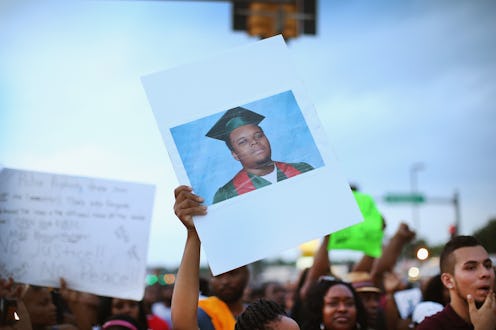News
3 Years After Michael Brown's Death, Are We Safe Yet?

Today we remember a Black teenager, Michael Brown, whose life was taken away from his parents and loved ones. We remember the community members from St. Louis that took bold action against ongoing criminalization and violence by the police. We remember very real sacrifices of Ferguson activists that are now dead or facing time in prison because they refused to allow the police to cause more harm to Black bodies. Three years later and we are still not safe. Who has the right to feel safe?
We need stronger, healthier communities, and not more prisons and detention centers.
The response to rampant police violence has been insufficient. Task forces and body cameras have become bandaids for a deeper systemic problem; they are not enough to keep our communities safe from criminalization and violence.
The media reminds us regularly about the violence Black and Brown people face — whether it's the transgender women of color that are being murdered, or the police force's monopolization in our communities.
In Charleston, we were reminded that racist, vigilante attacks against Black people are a part of this country’s legacy. This is a legacy built on violence through the subjection and criminalization of Black communities and terrorism to incite fear. Rather than addressing that legacy, the response to the Charleston massacre almost immediately focused on stronger gun regulations instead of creating meaningful cultural interventions.
As we look towards the future, I see the movements borne from these injustices making powerful change, in part by community organizing — the Safety Beyond Policing campaign and the Vision for Black Lives are some examples. But we must also engage in cultural strategies that exist outside of the system and build an alternative infrastructure that protects our communities from harm.
If we envision what actually makes us feel safe, it is not SWAT teams or police in our schools and our streets. We need organized and empowered communities with a social safety net. We need stronger, healthier communities, and not more prisons and detention centers. In a moment when communities are experiencing despair, isolation, and fear, it is incumbent upon us to create the transformative models for safety. To shift power from institutions to communities. To make the necessary radical interventions that we deserve. It is time to go back to our roots — to build outside the system.
Dante Barry is the co-founder & Executive Director of Million Hoodies Movement for Justice.